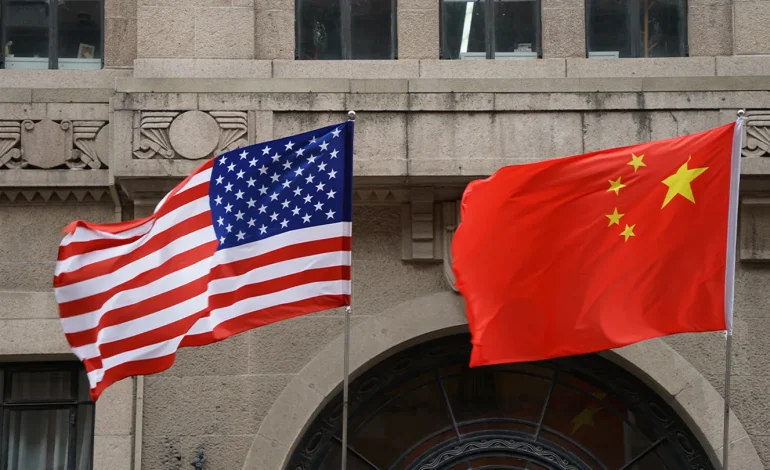Chinese Entities Aiding Mexican Drug Cartels with Chemicals, Money Laundering, U.S. Officials Say

U.S. immigration and border authorities have seized a massive shipment of chemical precursors linked to the production of methamphetamines, in what officials describe as another example of growing cooperation between Chinese networks and Mexican drug cartels.
According to the Department of Homeland Security, agents intercepted 50,000 kilograms of chemical compounds this week at a key entry point along the southern border. The chemicals, shipped from China, were bound for Mexico and believed to be intended for the Sinaloa Cartel, one of the country’s most powerful and violent drug trafficking organizations.
Officials say these chemicals are essential to the manufacture of methamphetamines and fentanyl—synthetic drugs that have contributed to a deadly wave of addiction across the United States.
“This initiative provides Homeland Security Investigations with a game-changing method to stay one step ahead of the cartels by disrupting the flow of chemicals they depend on to produce illicit narcotics,” said Chad Plantz, Special Agent in Charge for ICE Homeland Security Investigations in Houston.
Launched in 2019, the joint U.S. initiative targets suspicious chemical shipments from China, India, and other countries that are believed to be linked to cartel drug operations. To date, over 1.7 million kilograms of such precursors have been seized, including a 44,000-kilogram bust at the Port of Houston in March.
In addition to supplying the raw materials, Chinese entities are also playing a central role in laundering cartel profits, according to the U.S. Treasury Department.
The chemical bust comes amid a broader wave of incidents involving Chinese nationals allegedly engaging in espionage and subversive activities on U.S. soil.
In one recent case, two Chinese nationals were indicted for smuggling a “dangerous biological pathogen” into the U.S. for research at a University of Michigan lab. The case has reignited debate around national security and student visa policies, with critics citing long-standing concerns about foreign influence and inadequate scrutiny.
A separate report released last month by Stanford University students highlighted a troubling culture of collaboration with the Chinese Communist Party (CCP) among some students and faculty. The investigation alleged that some researchers were voluntarily or under coercion aligning their work with Beijing’s strategic interests—particularly in science and technology.
Meanwhile, the Justice Department on Friday indicted two more Chinese nationals and a U.S. lawful permanent resident for allegedly conspiring to export sensitive American military technology to China. In a separate case over the weekend, a British businessman was arrested for attempting to smuggle sensitive U.S. military components to Chinese entities.
Cybersecurity concerns have also escalated. This week, American AI company OpenAI shut down a Chinese-linked operation that had been using its ChatGPT platform to generate politically divisive content on social media.
The Trump administration is now ramping up efforts to counter Chinese espionage, including stricter visa policies for Chinese nationals. Critics say the Biden administration previously failed to take these concerns seriously.
“The new visa policy is long overdue,” said Rep. Michele Steel (R-Calif.). “After four years of willful ignorance—or gross incompetence—under the Biden administration, President Trump has wasted no time in directing his administration to take the decisive, necessary action to finally thwart the pervasive and growing threat of Chinese communist espionage.”
With input from Fox News








